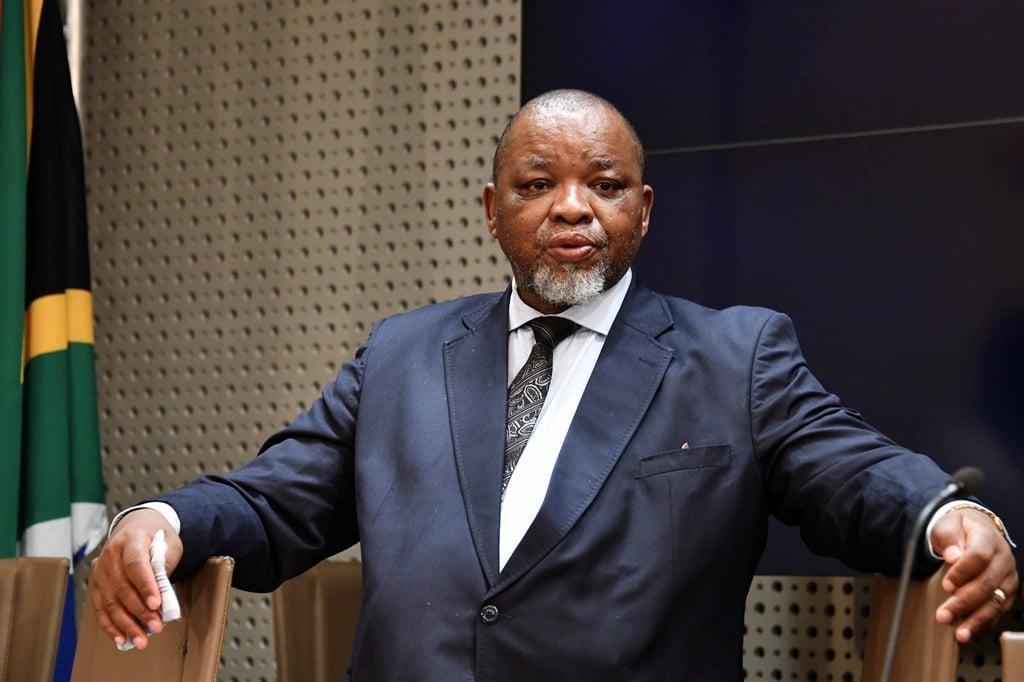Africa-Press – South-Africa. Mineral Resources and Energy Minister Gwede Mantashe has repeated the analogy he used to describe the exodus of Transnet executives, saying Mpho Makwana’s resignation as Eskom chair reminded him of mice fleeing methane underground.
“If you are underground and see mice running … you just follow them. Because when they run, half the time, they are smelling methane. To save yourself, you just follow them,” he said at a press briefing at Africa Oil Week in Cape Town on Tuesday.
“When there is an exodus of executives at institutions, there should be a kind of methane we investigate. It is concerning to have a number of executives running like mice, running from methane in a short space of time … what is the methane they are running from?”
Mantashe would not be drawn on to comment on what the “methane” is, but pointed out that people are not leaving the Department of Mineral Resources and Energy’s portfolio of companies.
“It is in other portfolios that there is this methane… and we must understand that methane. I don’t understand it … it has developed over the last week. When the Cabinet meets, they will talk about it,” he said.
Transnet’s CEO Portia Derby and Transnet Freight Rail CEO Siza Mzimela both recently resigned in the space of a week. Makwana’s resignation was announced on Monday night. Both Transnet and Eskom fall under Public Enterprises Minister Pravin Gordhan’s portfolio.
News24 reported that the relationship between Gordhan and Makwana deteriorated sharply in recent months. Among the disagreements between the two has been the selection of a new CEO for Eskom.
Energy plan
Mantashe also said that the long-awaited update on the Integrated Resources Plan (IRP) – which informs South Africa’s energy planning by specifying which generation technologies would be used to meet demand – is expected to be tabled before Cabinet by “the end of October.”
Mantashe said proposals for the IRP are being developed based on mathematical modelling. He did not say whether certain energy generation technologies would be included or excluded, as that would be “putting the cart before the horse”.
“I can tell you that it will be a multi-pathway IRP that we will see,” he said. “By [the] end of October, we will be tabling that to the Cabinet,” Mantashe added. The current IRP 2019 maps out South Africa’s energy planning up to 2030.
Don’t get cosy
Africa Oil Week, which is taking place at the Cape Town International Convention Centre, is considered the continent’s leading summit on oil and gas development.
Just outside the venue, members of Extinction Rebellion Cape Town, a climate activist group, had set up an artistic depiction of the minister in bed with an oil executive.
Judy Scott-Goldman, a spokesperson for Extinction Rebellion Cape Town, told News24 that the purpose of the demonstration was to tell the government not to get cosy with the oil industry. Extinction Rebellion and other civil society organisations have called for the exclusion of fossil fuels in the country’s energy mix in favour of renewables, which are more compatible with commitments to reduce emissions.
But from inside the conference venue, Mantashe spoke out against the anti-development stance NGOs are taking by trying to block oil and gas exploration.
The minister said that NGOs should be registered and declare their source of funding – in the same way that political parties have to register and declare their donors. “Otherwise, we will have free flow of funding to NGOs, and they block development,” he said.
The minister also remarked that the department is ready to issue Bid Window 7 of the Renewable Energy Independent Power Producer Procurement Programme but said Eskom is not ready. “Eskom must give assurance that they have an offtake agreement with us,” he said.
Secondly, Eskom must also ensure it has transmission capacity.
“If we do not get that from Eskom, we are in big trouble.”
Government was unable to award bids for wind projects in round six of the REIPPPP owing to grid constraints.
The current grid constraints are due to an unpredictable surge in renewables, happening much faster than planned, Eskom’s strategic grid planning manager, Ronald Marais told wind energy industry players at a conference last week.
Currently, the National Energy Crisis Committee has a workstream set up to deal with grid capacity constraints as well as potential financing solutions for grid expansion.
Eskom has also introduced interim rules to avoid grid hogging by projects which are not feeding power to the grid. But the rules were subject to a court challenge, which has since been settled after Eskom made adjustments to the rules.
For More News And Analysis About South-Africa Follow Africa-Press






